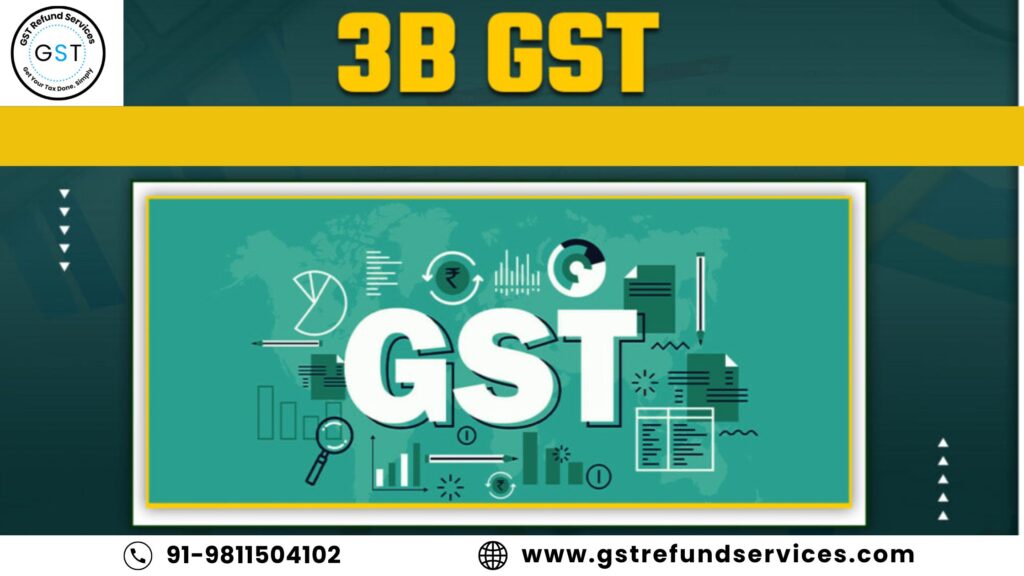
As GST requirements change, businesses must stay educated on the eligibility criteria and filing rules for GSTR-3B. This return form is necessary for summarizing a company’s monthly or quarterly tax liabilities and obtaining input tax credits. Here’s all you need to know about who must submit GSTR-3B and the rules for 2024.
Who Needs to File GSTR-3B?
- Normal Taxpayers: All firms registered for GST, including those with a normal tax scheme, must file GSTR-3B. This comprises companies of all sizes that surpass the GST registration criteria.
- Composition Scheme Taxpayers: Taxpayers that pay a fixed percentage of their turnover in taxes are excluded from filing GSTR-3B. Instead, they file the GSTR-4. They must, however, comply with additional scheme-specific reporting obligations.
- Non-resident taxable: Persons are required to file GSTR-3B, however they follow a different compliance schedule than ordinary taxpayers.
- Casual Taxable Persons: Those who are briefly engaged in business activities and get a casual taxable person registration are required to file GSTR-3B throughout the registration term.
- E-commerce Operators: E-commerce operators that have the obligation to collect tax at source (TCS) must file simultaneously GSTR-3B and GSTR-8, which is attached to TCS.
Filing Frequency and Deadlines
- Organizations with annual revenue of more than ₹5 crore must file GSTR-3B monthly. The deadline for monthly registrants normally falls on around the twentieth of the subsequent month. As an example, the GSTR-3B for August 2024 must be reported by September 20, 2024.
- Startups with an income of up to ₹5 crore may present regularly. In this case, the GSTR-3B must be filed every quarter, with the last day to file is the twentieth of the month succeeding the end of the previous month.
- Monthly Filers: Qualified taxpayers may be able to provide GSTR-3B on an annual basis, subject to the particular boundaries and announcements issued by the Council for GST.
Key Rules and Compliance Requirements
- Reliable Reporting: inspect that all transactions, purchases, and revenue taxes are appropriately stated in GSTR-3B. This incorporates a summary of the data input tax credits collected and any offset payments.
- Ongoing reliability :reconcile GSTR-3B with each month’s return (GSTR-1), as well as accounts. disparities between these reports may end in notices from the taxing body.
- Payment of taxes: To steer clear of late monetary penalties and desire, pay taxes in full by the due date. Ensure that tax payments have been submitted under the proper heading (CGST, SGST, IGST, or cess).
- Refusal: To file GSTR-3B by the appointed time can result in late fines of ₹200 per day (₹100 each for CGST and SGST), as well as penalties on unpaid taxes. It is vital to meet deadlines.
- Documentation: Maintain proper documentation and records for all transactions reported in GSTR-3B. This includes invoices, payment receipts, and correspondence related to GST filings.
Understanding the eligibility criteria and filing rules for GSTR-3B is essential for GST compliance. Regular taxpayers, non-residents, and e-commerce operators must adhere to the filing deadlines and accurately report their transactions to avoid penalties. Businesses should stay updated with the latest GST notifications and consider consulting with tax professionals to ensure smooth and timely compliance. For assistance with your GSTR-3B filings and to ensure you meet all compliance requirements, contact us at GST Refund Services. We are here to support you through the complexities of GST regulations and help you optimize your tax management.
